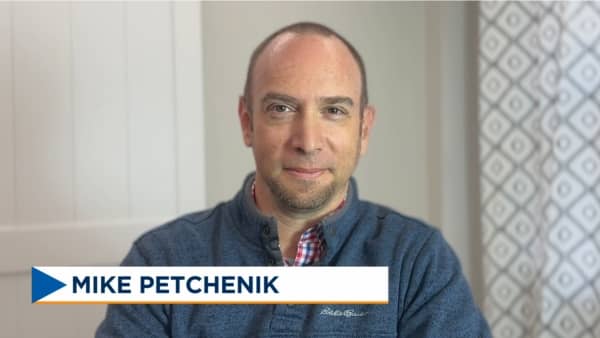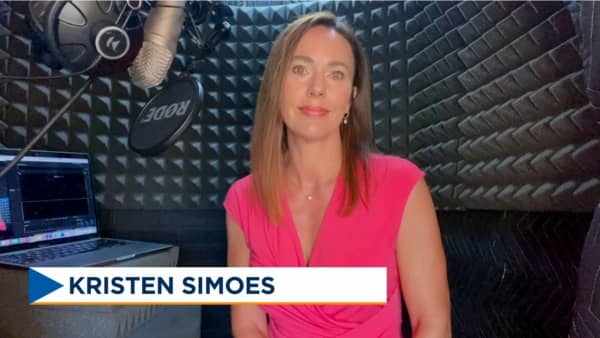Machine Living
How do we keep creating in the shadow of Artificial Intelligence?
In this series of articles, video productions, and podcasts, we tap into a community of creators to try to make sense of how we make our way in the age of AI. One theme is constant and timeless: adapt, or risk fading away, in a world where machines increasingly influence our way of living.
By Will Frampton
Owner and Director at McLeod Media
Was this article written by Artificial Intelligence?
How many of us have started asking those questions about the content we consume? The stuff is out there, and we know it: words written by machines with almost no human contribution other than a prompt on the subject matter with a few points of guidance.
And then, like magic, the content appears.
The societal acceptance of this — or maybe the better word is, resignation? — seems to have come fairly quickly. We can’t unsee what we’ve seen with the power of AI. We see how much content can be generated and how much can be accomplished in such a short time with these new tools.
And since time is one of the most valuable commodities on the planet, we are collectively hypnotized by this power to save time and get more done. Even if it means we are less human — and more machine — in some regards.
Back to the original question: are you reading AI content right now? Or are these the actual, honest words of Will Frampton?



Keeping it real
I’m going to go against classic Storytelling 101 and give away a surprise up-front rather than at the end: No, there’s not a single bit of AI influence in these words, nor in the words of the people who will be quoted in this series.
Mike Petchenik. Kristen Simoes. Joe Gransden. We all work in the media, production, and/or the creative arts industry. We’re talking 100+ years of combined experience. I’ve been chatting with them about these questions of AI and its influence, and I’m eager to collect their thoughts, put them to paper, and edit their soundbites into full pieces.
As I write these words, I get texts from Joe and Mike, saying, “Sure, I’ll contribute.” Kristen’s appearance has already been filmed.
Call me old-fashioned, but this joy of collaborating and creating with other humans gives me a shot of energy and purpose. Pulling up Chat GPT on a web browser doesn’t have the same appeal.
Before we get to their observations, I’ll submit a few more feelings on AI and its place in our world.
I will freely admit that curiosity and temptation have been creeping in. All it takes is a few strokes of the letters on this keyboard, and I can be magically whisked away to the land of Chat GPT, where all of my content ideas can be laid out before me without my brain having to exercise much in the way of muscle.
How many of you have tried a prompt something like this: “Write a quick bio about myself for my LinkedIn page,” or “Give me a content calendar with topics for regular social media posts,” or even: “Write me a blog about this-and-that.”
The temptation has receded as I have dipped my toe into those waters, trying a few combinations of these requests. Whatever was generated as text by the machine felt nothing like what I would write. The style was something bland, like if you were to try and describe the color tone of an office room with fluorescent lighting and no other light source, that’s about how vibrant it felt.
I had to go back and make so many changes to these AI concoctions that I thought, “It would have been faster — and better — to start from scratch.”
Hard realities, stubbornness, and accepting revolutionary movements
Organizations within media and production are already finding ways to leverage AI, save time, and out-pace competitors. Those companies have identified the places that make sense, where it’s OK to be “less human” and where humans either won’t notice or won’t care.
In this area, McLeod Media is, as of this day in November 2023, stubborn and old-fashioned. We cannot pretend to be something we are not. We are a network of producers who love the art of storytelling, finding the humanity, heart, and soul in every story and getting so immersed in these projects that we feel the process and results as profoundly as the people for whom we are producing.
Consulting AI for even a portion of that process feels like a betrayal of the art form, a dereliction of duty for those who need their stories told with heart and soul.
And yet, we cannot keep our heads in the ground when the sand storms of change blow across the dunes. This AI movement feels like one of those moments. We will wake up in a few years, and our grade school children of today will be so immersed with AI that it will have become as much a part of their day as turning on the radio for morning headlines became for our grandparents of the 1930s.
Their parents, born in the 1880s, must have been shocked and even appalled that the newspaper was circumvented as the most immediate source of news and information.
Every era has its revolutionary movement. What are we to make of this one? How do we adapt? And how do we stay as human as possible while allowing more machines to take over parts of our lives?
One more look back to the original question, with a cold-hard-facts addition that I think is the real question: are you reading AI right now? Or are these the true, honest words of Will Frampton? And if it’s AI, do you even care?
That, my friends, is our look-in-the-mirror question. How much do we care if computers take over certain aspects of our lives? We’ve allowed machines to do more and more for us over the last 200+ years. What’s to think we will stop with these AI conduits that are closer and closer to creating new art forms independent of humans?
The degree to which society cares about human contributions to the creative arts will determine how much we allow the machines to become more a part of us.
In the coming weeks, we will release articles, broadcasts, and podcasts, each featuring one of our media friends to offer insights, hard realities, and solutions. These are great people with great experience, stories, and insight. But like anyone else in journalism or the creative arts, they are pragmatists, not afraid to say out loud the hard truths that stare us in the face.
Here, we offer a preview of our conversations with Kristen, Mike, and Joe, and we look forward to sharing dedicated segments for each.
Until then — cheers, to being human.
